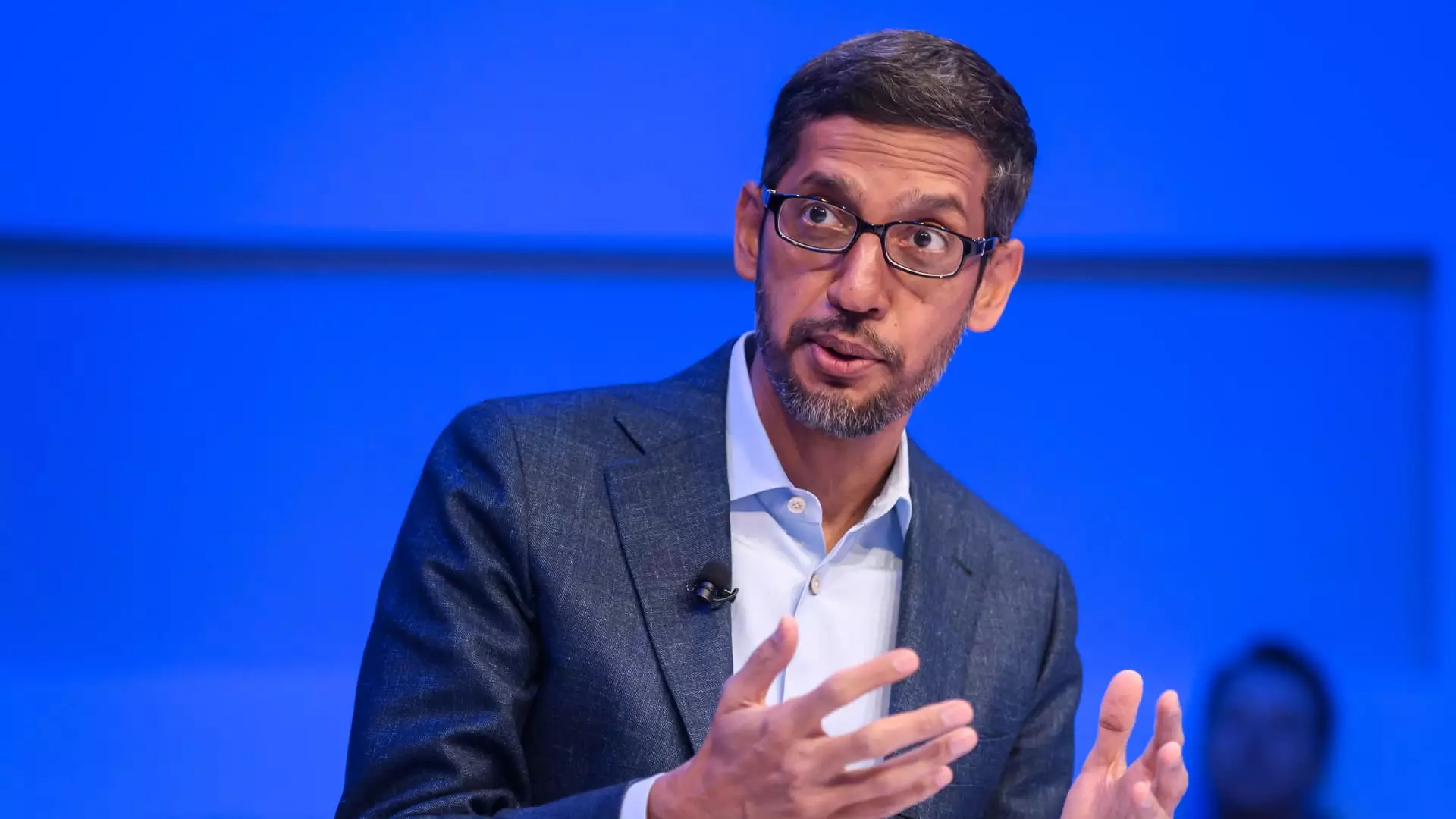In a recent address to Google employees, CEO Sundar Pichai painted a vivid picture of the challenges and opportunities that lie ahead as the tech giant gears up for the year 2025. “The stakes are high,” he emphasized, highlighting a climate filled with intense competition, regulatory challenges, and rapid technological advancements, particularly in artificial intelligence (AI). At a strategy meeting held on December 18, adorned in humorous holiday attire, Pichai outlined an ambitious vision for the coming year, underscoring the imperative for the company to accelerate its pace of innovation and adapt swiftly to an evolving market landscape.
Pichai’s remarks underscore a crucial moment in Google’s history, emphasizing the need for a renewed focus on leveraging AI to address genuine user needs. As the company faces scrutiny from regulators and increasing pressure from startups and players in the search market, its dominance is far from guaranteed. These reflections on the state of affairs reveal a tech behemoth at a crossroads, navigating the twin forces of internal culture and external competition.
The scrutiny surrounding Google is intensifying, with recent legal challenges alleging monopolistic practices in the search market leading to a heightened regulatory environment. A federal judge recently declared that Google engages in illegal monopolistic behavior, notably in its control of online advertising technology. The ramifications of these judicial determinations could significantly reshape Google’s operational strategies. Similarly, the U.K. Competition and Markets Authority has provisionally flagged issues with Google’s ad tech practices, further complicating its existing challenges.
As Pichai acknowledged, these regulatory hurdles are not merely administrative inconveniences; they are pivotal challenges that require strategic foresight and adaptability. The company must respond decisively to these issues while internalizing the need for rapid innovation. The moment calls for an agile approach, balancing compliance with aggressive growth strategies.
Compounding these challenges is the fierce competition from emerging AI companies. The advent of generative AI, fueled by innovations such as OpenAI’s ChatGPT, has significantly altered the search landscape. In recent months, competitors have rapidly gained traction, raising essential questions about Google’s future positioning in a sector where efficiency and speed in product development have become paramount.
Pichai outlined Google’s strategy to counter this wave of competition, focusing on the rollout of its AI offering, Gemini. The company is pouring resources into scaling this innovative platform, which executives hope will evolve into a major contender in the AI and search market. The urgency of these developments cannot be overstated, as Google is aware that maintaining its reputation for excellence in technology requires not just participation, but proactive leadership in innovation.
Internal Strategies and Innovations
To maintain its competitive edge, Google is investing heavily in new technologies while fostering a culture of rapid development and creativity. The success of the Gemini app is pivotal for Google’s strategy, aimed at attracting a vast user base and integrating innovative features deeply into consumer experiences. Pichai’s acknowledgment of the company’s position as not the fastest out of the gate but rather focused on quality execution underscores a strategic pivot that seeks to redefine Google’s identity in a crowded field.
Moreover, as Google embarks on this journey, it is essential not only to innovate but also to foster an internal culture that thrives on agility and creativity. With Google having reduced its workforce in the past year by 6%, Pichai’s call to remain “scrappy” inspires a renewed sense of urgency and resourcefulness reminiscent of the company’s formative years. This approach aligns with Google founders Larry Page and Sergey Brin’s original spirit of innovation when they created the company.
The Road Ahead
As Google stands on the precipice of transformation, the implications of 2025 extend far beyond product launches. The company must navigate a complex interplay of innovation, regulatory compliance, and competitive positioning. Pichai’s vision resonates with a sense of purpose, urging employees to embrace the challenges ahead while continuously enhancing their strategies.
The journey toward 2025 will undoubtedly be turbulent, fraught with uncertainties and fierce competition. Nevertheless, Google’s reputation as an industry leader hinges on its innovative spirit and the ability to adapt in real-time. By cultivating an environment that encourages both creative thinking and operational efficiency, Google can position itself not just to compete, but to lead in the rapidly evolving digital landscape.
The road ahead for Google is both daunting and promising. As the company embraces a new era of AI and navigates regulatory scrutiny, the call for urgency and innovation will be crucial. With a robust internal strategy and a commitment to excellence, Google aims to not only survive but thrive in a world where technology and competition intersect dramatically.

